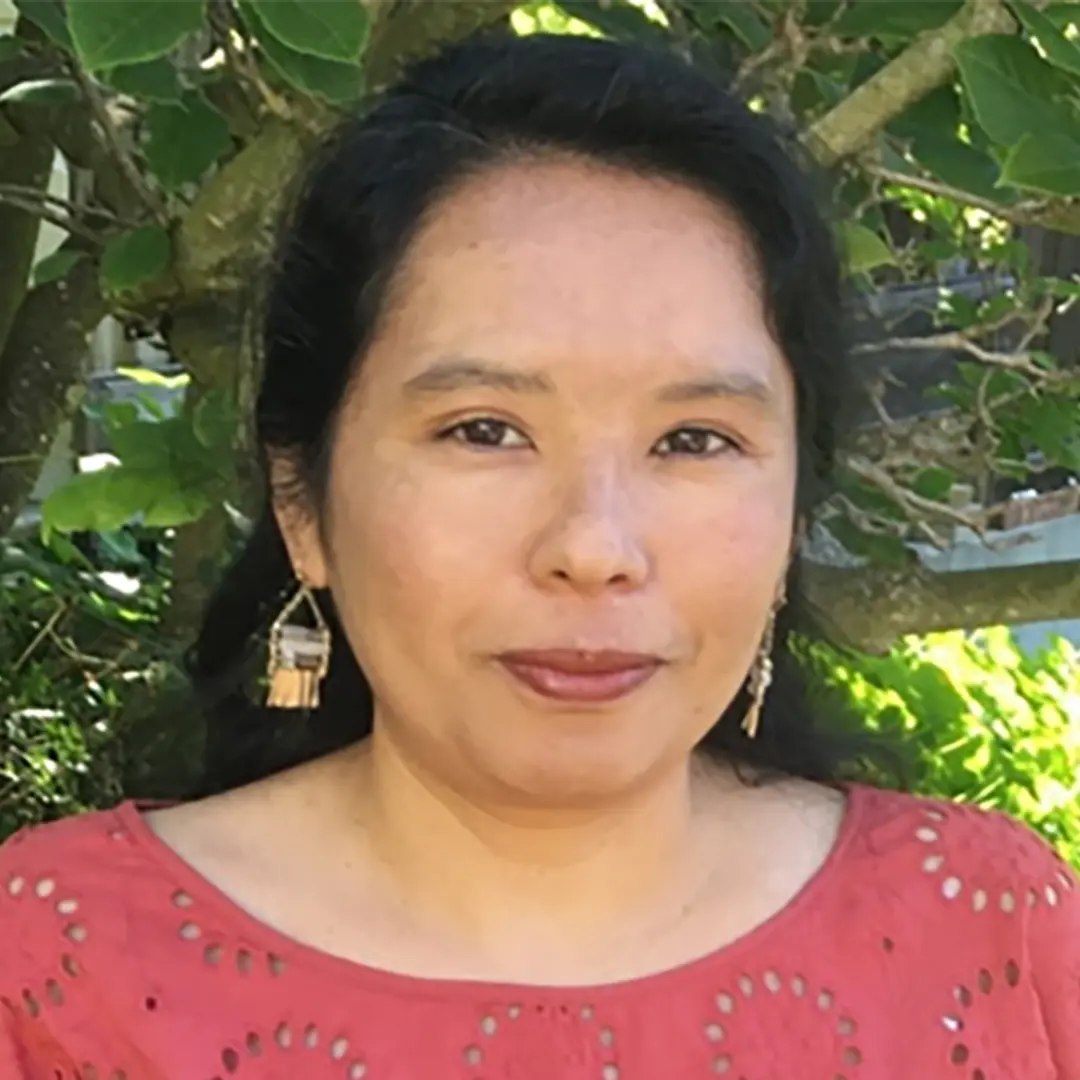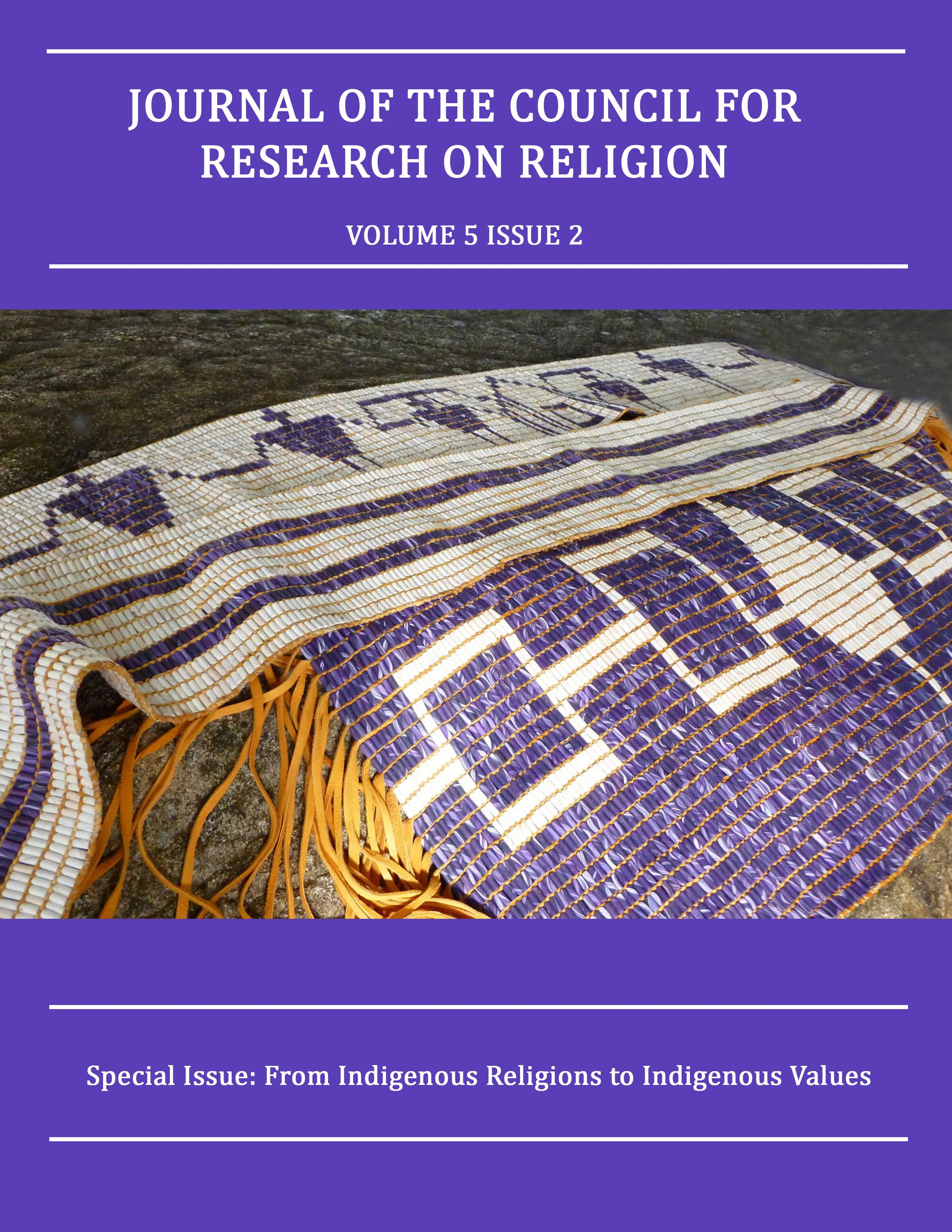The Bankruptcy of the Category of Religion
This article takes as its point of departure the 2022 Interim Report of the United Nations Special Rapporteur on Freedom of Religion or Belief, entitled “Indigenous Peoples and the Right to Freedom of Religion or Belief.”

Dana Lloyd
Villanova University

Cecilia Titizano
Santa Clara University
Permalink: https://doi.org/10.26443/jcreor.v5i2.116
Abstract
This article takes as its point of departure the 2022 Interim Report of the United Nations Special Rapporteur on Freedom of Religion or Belief, entitled “Indigenous Peoples and the Right to Freedom of Religion or Belief.” The report recommends “collaborat[ing] with indigenous spiritual leaders and influencers to support conservation efforts and the sustainable development of traditional lands through a human rights-based approach.” We ask what a human-rights-based approach to the conservation and sustainable development of traditional Indigenous lands looks like. More specifically, would such an approach be in line with the worldviews of the Indigenous peoples potentially affected by such conservation or development? We consider these questions both legally and theologically. We acknowledge that the protection of human rights is better than their violation, but we also take seriously critiques of this standard human rights discourse. We argue that case studies such as Oak Flat, Lake Titicaca, and the Klamath River call us away from abstract affirmations of the human right to religious freedom and toward a rights-of-nature framework – even as we consider critiques of this framework as well. Ultimately, both Western legal discourse and Western religious studies discourse reduce Indigenous cosmologies (which are metaphysical systems) into cultural debates, thus erasing the sovereignty of Indigenous lands and peoples. A decolonizing approach therefore requires a rethinking of the sacred.
Author Biographies #
Cecilia Titizano, Santa Clara University #
Maria Cecilia Titizano La Fuente earned an MS in International and Agricultural Development from UC-Davis and an M.T.S. in Theological Studies from the Franciscan School of Theology. A native of Bolivia, Titizano recently completed her Ph.D. in Systematic and Philosophical Theology from Graduate Theological Union. Her transdisciplinary research focuses on indigenous philosophies and spiritualities, feminist epistemology, and decoloniality. Currently, she is working on indigenous feminist theologies and decolonial intercultural hermeneutics. Titizano is a constructive comparative theologian. She specializes in Indigenous thought and Christian theology with an emphasis on Trinitarian pneumatology, feminist and liberationist theologies. She currently serves as a Board Member for Memoria Indígena, a Latin American organization dedicated to “recognize and remember indigenous Christians’ memories in Abya Yala,” and is member of the Comunidad de Teólogas Indígenas del Abya Yala.
Dana Lloyd, Villanova University #
Dana Lloyd, PhD, joined Villanova University as assistant professor of Global Interdisciplinary Studies in fall 2021. A scholar of law, religion, and indigeneity, she has an article, “Storytelling and the High Country: Reading Lyng v. Northwest Indian Cemetery Protective Association,” in the forthcoming issue of Journal of Law and Religion, as well as an article “Law, Religion, and Paradoxes of Sovereignty,” which serves as an introduction to a symposium she guest-edited, in the forthcoming issue of Political Theology. She also has two chapters in the forthcoming edited volume Indigenous Religious Traditions in Five Minutes (Equinix, 2022): “Is Indigenous Law Religious?” and “What is a Land-Based Religious Tradition?”
Her recent public scholarship includes “Native American Religious Freedom After Trump,” “Rights of Indigenous Peoples and the Nonhuman Environment” and “The Coloniality of Wilderness.” She is the curator of a forthcoming symposium on Kathleen Sands’ America’s Religious Wars.
References #
Apache Stronghold v. United States, No. 21-15295 (9th Cir. 2024).
Associated Press. “The Largest Dam Demolition in History is Approved for a Western River.” November 17, 2022. https://www.npr.org/2022/11/17/1137442481/dam-demolition-klamath-river-california-federal-regulators-salmon.
Avalos, Natalie. “Indigenous Religious Traditions and the Decolonial Turn in Religious Studies.” Religious Studies Review 50, no. 2 (2024): 267–272.
Barker, Joanne. “Confluence: Water as an Analytic of Indigenous Feminisms.” American Indian Culture and Research Journal 43 no. 3 (2019): 1–40.
Barriga, Rubén Saraza. El Poder de La Wak’as. Lenguaje de La Espiritualidad Andina. Puno, Perú: n.p., 2019.
Blaser, Mario. “Ontological Conflicts and the Stories of Peoples in Spite of Europe: Toward a Conversation on Political Ontology.” Current Anthropology 54, no. 5 (2013): 547–568.
Borrows, John. Law’s Indigenous Ethics. Toronto, ON: University of Toronto Press, 2019.
Borrows, Lindsay Keegitah. Otter’s Journey Through Indigenous Language and Law. Vancouver, BC: UBC Press, 2018.
Cadena, Marisol de la. “Not Knowing: In the Presence Of …” In Experimenting with Ethnography: A Companion to Analysis, 246–256, edited by Andrea Ballestero and Brit Ross Winthereik. Durham, NC: Duke University Press, 2021.
———. “Uncommoning Nature: Stories from the Anthropo-Not-Seen.” In Anthropos and the Material, 95–117, edited by Penny Harvey, Christian Krohn-Hansen, and Knut G. Nustad. Durham, NC: Duke University Press, 2019.
Carpenter, Kristen A. “‘Aspirations’: The United States and Indigenous Peoples’ Human Rights.” Harvard Human Rights Journal 36 (2023): 41–88.
Carreño, Guillermo Salas. Lugares Parientes. Comida, Cohabitación y Mundos Andinos. Fondo Editorial de la Pontificia Universidad Católica del Perú, 2019.
Castro, Eduardo Viveiros de. “Cosmological Deixis and Amerindian Perspectivism.” Journal of the Royal Anthropological Institute 4, no. 3 (September 1998): 469–488.
———. Cosmological Perspectivism in Amazonia and Elsewhere: Four Lectures Given in the Department of Social Anthropology, University of Cambridge, February–March 1998, vol. 1, HAU Master Series. Manchester, UK: HAU Books, 2012.
Correia, Joel. Disrupting the Patrón: Indigenous Land Rights and the Fight for Environmental Justice in Paraguay’s Chaco. Berkeley: University of California Press, 2023.
Descola, Philippe. Beyond Nature and Culture. Translated by Janet Lloyd. Chicago, IL: University of Chicago Press, 2013.
Dworkin, Ronald. “How Law Is Like Literature.” In A Matter of Principle, 146–166. Cambridge, MA: Harvard University Press, 1986.
———. Law’s Empire. Cambridge, MA: Harvard University Press, 1986.
Eliade, Mircea, and Lawrence E. Sullivan. “Hierophany.” In Encyclopedia of Religion, vol. 6, 2nd ed., 3970–3974. Edited by Lindsay Jones. Detroit, MI: Macmillan Reference USA, 2005.
Estes, Nick. Our History Is the Future: Standing Rock Versus the Dakota Access Pipeline, and the Long Tradition of Indigenous Resistance. New York: Verso, 2019.
Goeman, Mishuana. “From Space to Territories and Back Again: Centering Storied Land in the Discussion of Indigenous Nation Building.” International Journal of Critical Indigenous Studies 1, no. 1 (2008): 23–34.
Grosfoguel, Ramón. “Transmodernity, Border Thinking, and Global Coloniality.” Humandee: Human Management and Development, Decolonizing Political Economy and Postcolonial Studies. January 23, 2013. http://www.humandee.org/spip.php?article111.
Hay, Colin. “Political Ontology.” In The Oxford Handbook of Political Science, 78–96. Edited by Robert Goodin. Oxford: Oxford University Press, 2011.
Jabiel, Sallie. “Las Defensoras de la Vida que se Extingue en el Lago Titicaca.” Des-Informémonos: Periodismo de Abajo, July 17, 2022. https://desinformemonos.org/las-defensoras-de-la-vida-que-se-extingue-en-el-lago-titicaca/.
Jefferson Exchange Team. “Yuroks Grant Rights to Klamath River.” The Jefferson Exchange, Jefferson Public Radio, May 29, 2019. 17 min., 48 sec. https://www.ijpr.org/show/the-jefferson-exchange/2019-05-29/yuroks-grant-rights-to-the-klamath-river?fbclid=IwAR092bQgdLsz2PX_-3oPjSE2s4QpKXDO03IwPIi8S1IMEMc5b1hC9X2oq3M#stream/0.
Kulchyski, Peter. Aboriginal Rights Are Not Human Rights: In Defence of Indigenous Struggles. Winnipeg: Arbeiter Ring Publishing, 2013.
LaDuke, Winona. Recovering the Sacred: The Power of Naming and Claiming. Chicago, IL: Haymarket Books, 2015.
Lloyd, Dana. Land Is Kin: Sovereignty, Religious Freedom, and Indigenous Sacred sites. Lawrence: University Press of Kansas, 2024.
Lyng v. Northwest Indian Cemetery Protective Association (1988), 485 U.S. 439.
Marshall, Colin, ed. Comparative Metaethics: Neglected Perspectives on the Foundations of Morality. New York, NY: Routledge, 2020.
McNally, Michael. “The Sacred and the Profaned: Protection of Native American Sacred Places That Are Already Desecrated.” California Law Review 111 (2023): 395–464.
Mendoza, Zoila. Qoyllur rit’i: Crónica de una Peregrinación Cusqueña. Primera edición. Lima, Perú: La Siniestra Ensayos, 2021.
Mignolo, Walter. “Decolonizing Western Epistemologies/Building Decolonial Epistemologies.” In Decolonizing Epistemologies: Latina/o Theology and Philosophy, 19–43, edited by Ada María Isasi-Díaz and Eduardo Mendieta. New York, NY: Fordham University Press, 2012.
Mignolo, Walter D., and Catherine E. Walsh. “The Invention of the Human and the Three Pillars of the Colonial Matrix of Power: Racism, Sexism, and Nature.” In On Decoloniality: Concepts, Analytics, Praxis, 153–176. Durham, NC: Duke University Press, 2018.
Religious Freedom Restoration Act (1993), 42 U.S.C. §§ 2000bb-2000bb4.
Salles-Reese, Verónica. From Viracocha to the Virgin of Copacabana: Representation of the Sacred at Lake Titicaca. Austin, TX: University of Texas Press, 1997.
Simpson, Leanne Betasamosake. “Land as Pedagogy: Nishnaabeg Intelligence and Rebellious Transformation.” Decolonization: Indigeneity, Education, & Society 3, no. 3 (2014): 1–25.
Smith, Anna V. “At Oak Flat, Courts and Politicians Fail Tribes.” High Country News, July 26, 2022, www.hcn.org/articles/indigenous-affairs-justice-at-oak-flat-courts-and-politicians-fail-tribes.
Smith, Theresa. Island of Anishnaabeg: Thunderers and Water Monsters in the Traditional Ojibwe Life-World. Lincoln: University of Nebraska Press, 2012.
Tessier, Adrienne. “Indigenous Religious Freedom in International Law: A Discussion of the Potential of Articles 12 and 25 of the United Nations Declaration on the Rights of Indigenous Peoples (UNDRIP).” In Research Handbook on the International Law of Indigenous Rights, 376–395. Edited by Dwight Newman. Cheltenham, UK: Edward Elgar Publishing Limited, 2022.
Titizano, Cecilia.“Who is Our Neighbor? Other-than-Human People and Climate Change Organizing.” Journal of Catholic Social Thought 21, no. 2 (2024): 325–341.
———. “Indigenous Feminist Epistemologies: A Methodological Reflection at El Mercado/Qhathu.” In Religion in the Américas: Transcultural and Trans-hemispheric Approaches. Edited by Chris Torres and Jessica Delgado. New Mexico Press, forthcoming.
Wenger, Tisa. “Fighting for Oak Flat: Western Apaches and American Religious Freedom.” Journal of Law and Religion 39, no. 2 (2024): 1¬–23.
Wilcox, Joan Parisi. Masters of the Living Energy: The Mystical World of the Q’ero of Peru. New York: Inner Traditions International, Limited, 2004.
Yurok Tribal Council. Resolution 19–40: “Resolution to Extend the Rights of the Klamath River.” May 9, 2019. http://files.harmonywithnatureun.org/uploads/upload833.pdf.
Download Citation #

Published : 18 September 2024
Keywords
Bankruptcy
Religion
Dana Lloyd
Cecilia Titizano
How to Cite
Titizano, Cecilia, and Dana Lloyd. 2024. “The Bankruptcy of the Category of Religion: A Decolonizing Approach”. Journal of the Council for Research on Religion 5 (2). Montreal, QC, Canada:58-74.
https://doi.org/10.26443/jcreor.v5i2.116
Share
Information


